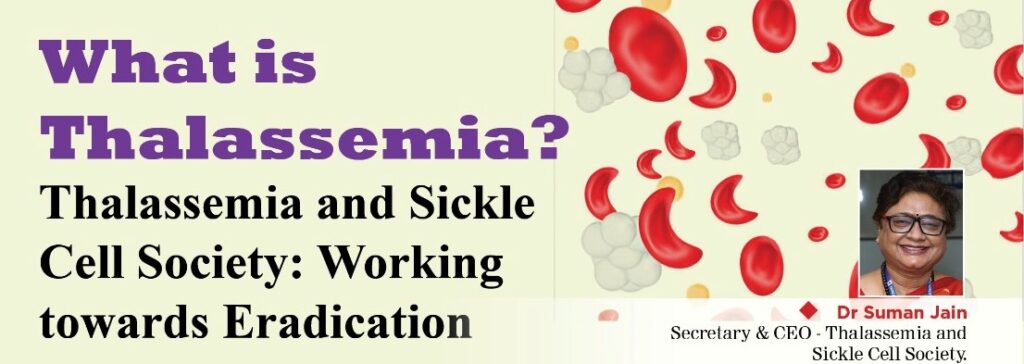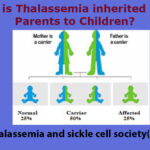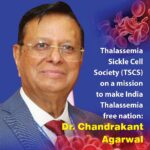What is Thalassemia? Thalassemia is a group of inherited blood disorders characterized by abnormal haemoglobin production, resulting in inadequate oxygen transportation and red blood cell destruction.
Thalassemia is a serious health concern, but with advancements in medical research and the dedication of various organizations and government bodies, efforts towards its eradication are gaining momentum. One such prominent organization making significant contributions to this cause is the Thalassemia and Sickle Cell Society.


It is a genetic disorder that affects the production of haemoglobin, the protein responsible for carrying oxygen throughout the body. It is caused by mutations in the genes that control haemoglobin production. There are two primary types: alpha and beta. Alpha thalassemia occurs when there are defects in the genes responsible for alpha-globin production, while beta thalassemia occurs due to mutations in the genes controlling beta-globin production. The severity of thalassemia can range from mild to severe, depending on the number of gene mutations and their specific impact on haemoglobin production.
Causes of Thalassemia:
It is an inherited disorder, which means it is passed down from parents to their children through the genes. If both parents carry the thalassemia gene, their child has a higher likelihood of developing the condition. However, if only one parent carries the gene, the child may become a carrier but may not necessarily develop the symptoms. Factors such as consanguineous marriages (marriages between close relatives) increase the risk of thalassemia due to the higher likelihood of carrying the same gene mutations.
Treatment Options:
While it is a lifelong condition, various treatment approaches can help manage its symptoms and improve the quality of life for affected individuals. The treatment plan depends on the severity of the condition and may include blood transfusions, iron chelation therapy to remove excess iron from the body, folic acid supplementation, and, in severe cases, bone marrow transplantation. With advancements in medical research, gene therapy is also being explored as a potential curative treatment option.
Thalassemia and Sickle Cell Society: Working towards Eradication
Thalassemia and Sickle Cell Society is dedicated to supporting individuals affected by thalassemia and sickle cell disease.
Raising Awareness: TSCS plays a crucial role in educating the general public, healthcare professionals, and affected individuals. They organize awareness campaigns, seminars, and workshops to disseminate accurate information, dispel myths, and promote early diagnosis and prevention strategies.
Support for Patients: Recognizing the challenges faced by individuals living with it, the society offers comprehensive support services. These services include counselling, financial aid for medical expenses, facilitating access to treatments, and creating support networks to connect patients and families with others who share similar experiences.
Research and Advocacy: Thalassemia and Sickle Cell Society actively funds research projects aimed at advancing our understanding and developing innovative treatment modalities. Through their collaborations with researchers, clinicians, and healthcare institutions, society drives scientific breakthroughs that can lead to more effective therapies and ultimately contribute to the eradication of thalassemia.
Policy Development: The society works closely with governmental organizations, policymakers, and healthcare authorities to advocate for improved healthcare infrastructure, increased funding for research, and the development of comprehensive national thalassemia prevention and treatment programs. By actively engaging with these stakeholders, the society strives to create a supportive environment that prioritizes the needs of patients.
It is a significant national health concern that necessitates collective efforts to eradicate it. Thalassemia and Sickle Cell Society serves as a beacon of hope for individuals affected by this genetic disorder. Through its multifaceted approach encompassing awareness campaigns, patient support, research funding, and advocacy, the society is instrumental in driving advancements in treatment and prevention. With continued dedication from organizations like the Thalassemia and Sickle Cell Society, we move closer to a future where thalassemia is a condition of the past, ensuring healthier lives for generations to come.


Dr Suman Jain
Secretary & CEO, Thalassemia and Sickle Cell Society.













